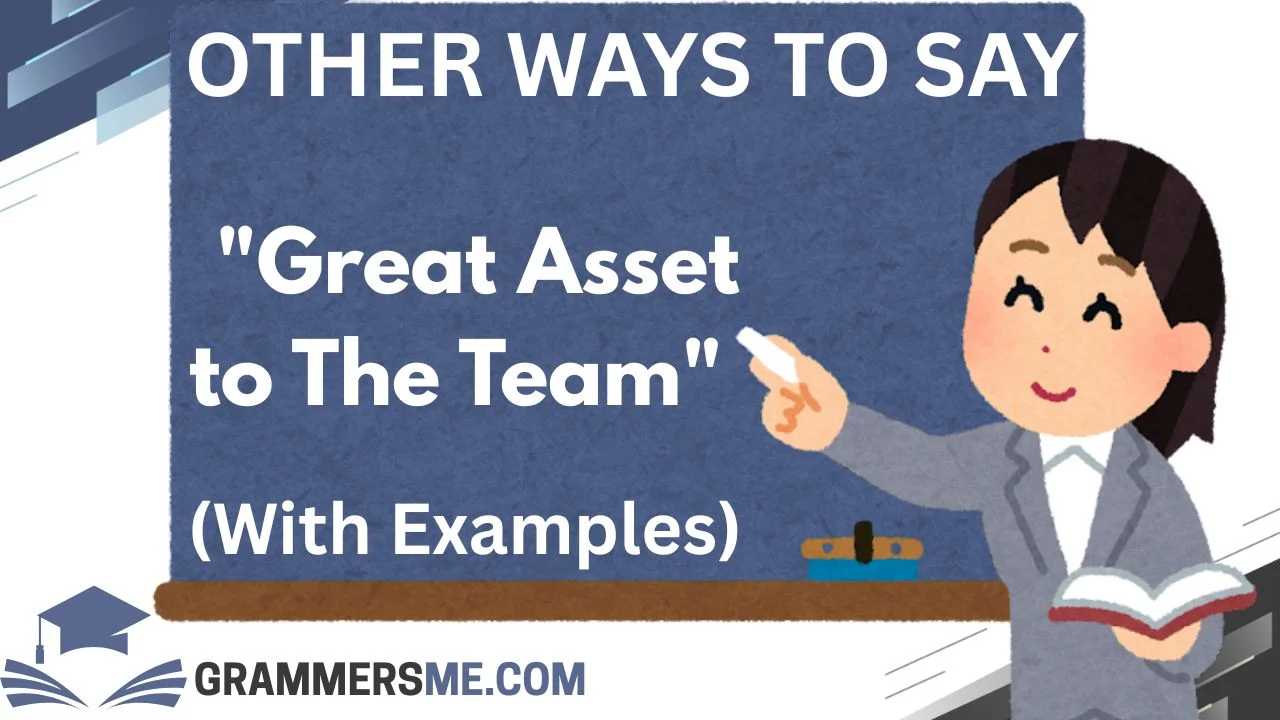When it comes to expressing support, encouragement, or confidence in someone, finding the right words can make all the difference. Saying “I believe in you” is a powerful way to show your faith in someone’s abilities and potential, but there are plenty of other heartfelt ways to convey this message.
The right phrasing can not only make your words feel more personal but also help you build a deeper connection. Whether you’re offering support to a friend, a colleague, or a loved one, these alternatives will let you communicate your belief with warmth, care, and thoughtfulness.
What Does “I Believe in You” Mean?
Before diving into alternatives, it’s important to understand what “I believe in you” really means. This phrase signifies a deep sense of trust and confidence in someone’s abilities, choices, and potential. It’s an expression of emotional support, a way of reassuring someone that they have the strength and skills to overcome challenges or succeed in their endeavors.
Is It Professional/Polite to Say “I Believe in You”?
While saying “I believe in you” is typically considered warm and personal, it can also be used in professional settings when showing support or faith in a colleague’s abilities. However, the context matters. In a formal business environment, it may be more appropriate to express your support in a way that aligns with the professional tone. That said, offering encouragement in the right moment can go a long way in fostering positive working relationships.
1. I Have Faith in You
Meaning: Expressing faith in someone goes beyond just belief; it suggests a deep, unwavering confidence in their capabilities.
Detailed Explanation: This phrase is similar to “I believe in you” but can carry a more spiritual or profound connotation. Saying “I have faith in you” indicates that you trust the person to handle challenges with grace and determination.
Scenario Example: A manager might say this to an employee who is about to take on a major project, conveying trust in their ability to succeed.
Best Use: Use this phrase when you want to express a profound level of trust, particularly in a challenging situation.
Not Use: Avoid using this in casual or lighthearted situations, as it may come off as overly serious.
2. I’m Behind You 100%
Meaning: This expression communicates total and unwavering support.
Detailed Explanation: Saying you’re “behind” someone suggests that you are standing with them, no matter what happens. It implies that they have your full support, both emotionally and practically.
Scenario Example: A friend going through a tough breakup might hear this from you, reassuring them that you’re with them every step of the way.
Best Use: Best used when someone is facing a challenge or embarking on a journey where they need emotional backing.
Not Use: This phrase may not be suitable in highly formal settings where professional language is expected.
3. You’ve Got This
Meaning: A casual and encouraging way to express confidence in someone’s ability to succeed.
Detailed Explanation: This phrase is often used to reassure someone, providing them with a boost of confidence in the face of an upcoming challenge or task.
Scenario Example: A friend preparing for an important exam might hear this from you, giving them the confidence they need to perform well.
Best Use: Use in informal, everyday situations when you want to encourage someone without being too formal.
Not Use: Avoid in formal professional settings where a more formal tone is necessary.
4. I Trust You
Meaning: A simple yet powerful statement of confidence and reliance on someone’s judgment or ability.
Detailed Explanation: This phrase expresses a deep level of trust, not just belief. It suggests that you have full confidence in the person’s decision-making and abilities.
Scenario Example: You might say this to a colleague who is leading a project, indicating your trust in their leadership.
Best Use: Ideal for professional environments or situations where the person is taking on responsibility.
Not Use: This can come off as too intense in casual or lighthearted settings.
5. You Can Do It
Meaning: A short and uplifting expression of encouragement.
Detailed Explanation: This phrase is an easily accessible way of showing confidence in someone’s ability to tackle a challenge. It’s supportive, simple, and effective.
Scenario Example: A parent might say this to a child before their first big performance, encouraging them to do their best.
Best Use: Perfect for informal situations, especially when someone is facing an immediate challenge.
Not Use: This is not ideal for formal or professional environments.
6. I Know You’re Capable
Meaning: Reassurance that the person has the skills and ability to succeed.
Detailed Explanation: This phrase tells the person that you believe in their abilities based on your understanding of their potential and past successes.
Scenario Example: You might say this to a colleague taking on a leadership role, emphasizing their capability to handle the responsibility.
Best Use: Use this when you know the person has the skills but may need a little encouragement to believe in themselves.
Not Use: Avoid using this when the person is facing a challenge that requires more than just capability—like when they are uncertain about their abilities.
7. I Know You’ve Got What It Takes
Meaning: A motivational phrase affirming that someone possesses the necessary qualities to succeed.
Detailed Explanation: Similar to “I trust you,” but with a stronger emphasis on the person’s qualities or skills that will help them overcome an obstacle.
Scenario Example: A coach might use this phrase to motivate a player who’s about to take a game-winning shot.
Best Use: Great for sports, challenges, or any situation where the person is facing an obstacle that requires personal qualities like determination or resilience.
Not Use: Don’t use this phrase in overly sensitive or emotionally vulnerable situations where the person may feel pressured.
8. I’m Sure You’ll Succeed
Meaning: A confident statement indicating you have no doubt about the person’s success.
Detailed Explanation: This phrase shows strong confidence in someone’s future success. It’s not just belief, but a certain assurance that they will accomplish their goal.
Scenario Example: You might say this to a colleague about a big presentation, conveying your certainty that they will do a great job.
Best Use: Best used when the person is about to embark on something significant, and you want to reassure them that they will succeed.
Not Use: This could sound overly certain in situations where the outcome is highly unpredictable or uncertain.
9. I Have No Doubts About You
Meaning: A strong declaration of belief in someone’s abilities without any reservations.
Detailed Explanation: This phrase emphasizes that you are confident in the person’s abilities to the point of having no doubts.
Scenario Example: A teacher might use this phrase when a student is preparing for a final exam, expressing complete confidence in their abilities.
Best Use: Ideal for situations where you want to instill confidence in someone who may be experiencing self-doubt.
Not Use: Avoid using this phrase in situations where doubt or uncertainty is necessary for growth or improvement.
10. I Know You Can Handle This
Meaning: An empowering statement that expresses confidence in someone’s ability to deal with a situation.
Detailed Explanation: This phrase conveys the belief that the person is equipped to manage whatever challenge lies ahead, whether it’s personal or professional.
Scenario Example: You might say this to a colleague who’s taking on a new project or a friend facing a personal challenge.
Best Use: Use this when you know the person has the skills, experience, or resilience to navigate difficult situations.
Not Use: This might not be appropriate for someone who is overwhelmed or unsure about their abilities.
11. You’re Strong Enough to Do This
Meaning: A statement emphasizing the person’s inner strength and capability.
Detailed Explanation: This phrase is an affirmation of someone’s resilience and strength, letting them know that they have the mental or emotional fortitude to face challenges.
Scenario Example: A friend going through a difficult breakup might hear this from you to remind them of their strength in handling tough situations.
Best Use: Ideal when someone is dealing with emotional or personal challenges and needs a reminder of their inner strength.
Not Use: Avoid using this in situations where the person feels emotionally vulnerable or unsure, as it could come off as dismissive.
12. I Know You’ll Come Through
Meaning: Expresses confidence that the person will overcome an obstacle or complete a task successfully.
Detailed Explanation: This phrase conveys assurance that the individual will rise to the occasion and succeed, no matter the difficulty.
Scenario Example: You might say this to a colleague working on a challenging project, letting them know that you believe they’ll succeed.
Best Use: Use this phrase when the person is facing a significant challenge, and you want to assure them of their eventual success.
Not Use: This is not ideal if the person is feeling uncertain about their abilities or is in a particularly stressful situation.
13. You Can Always Count on Me
Meaning: A reassuring phrase that tells someone they can rely on your support whenever they need it.
Detailed Explanation: This phrase emphasizes your availability and willingness to support the person no matter what challenges they face.
Scenario Example: A close friend might hear this from you when they’re going through a difficult time, assuring them that you’ll always be there for them.
Best Use: Use this in close relationships, particularly when the person needs emotional or practical support.
Not Use: Avoid using this in professional settings where more formal expressions of support are expected.
14. I’m Confident in You
Meaning: A clear expression of certainty in someone’s ability to succeed.
Detailed Explanation: This phrase emphasizes your belief in someone’s skills or potential. It carries a tone of assurance that they have what it takes to succeed.
Scenario Example: You might say this to a colleague who is about to present an important report, letting them know that you trust their expertise.
Best Use: Best used in professional settings where you need to show confidence in someone’s abilities.
Not Use: This phrase might not be as suitable in informal or emotional contexts, where more heartfelt expressions of support are needed.
15. You’ve Got This Under Control
Meaning: A phrase that reassures someone they are managing a situation effectively.
Detailed Explanation: This expression conveys confidence that the person is handling a situation well and will continue to manage it successfully.
Scenario Example: You might say this to a colleague handling a difficult client, letting them know that they are in control of the situation.
Best Use: Perfect for situations where someone is managing a project or task that requires focus and organization.
Not Use: This phrase may not be appropriate in high-pressure or chaotic situations where someone is struggling.
16. I Know You’ll Find a Way
Meaning: Expresses belief that the person will figure out how to overcome any challenge they face.
Detailed Explanation: This phrase highlights the person’s resourcefulness and ability to adapt to difficult situations, reinforcing that you believe they’ll succeed regardless of obstacles.
Scenario Example: A colleague working on a tough assignment might hear this from you, assuring them that they have the creativity and determination to solve the problem.
Best Use: Use this when someone is facing an uncertainty and needs a reminder that they can find a solution.
Not Use: Avoid this in situations where the person feels overwhelmed or defeated and needs more than just a simple reassurance.
Read More: 30 Other Ways to Say “Nice to E-Meet You” (With Examples)
17. I Know You’ll Do Great
Meaning: A positive and supportive statement showing confidence in the person’s upcoming performance.
Detailed Explanation: This phrase is simple yet effective, expressing strong belief that the person will succeed in whatever they are about to do.
Scenario Example: A friend who’s about to go on stage for a performance might hear this from you to give them confidence.
Best Use: Use this phrase in informal situations where you want to give someone a quick boost of confidence before they take action.
Not Use: This might not be suitable for high-stakes or more formal situations where deeper, more nuanced support is needed.
18. I Trust Your Judgment
Meaning: Expresses confidence in someone’s ability to make the right decision.
Detailed Explanation: This phrase shows respect for the person’s decision-making abilities and their capacity to navigate complex situations.
Scenario Example: A colleague who is leading a meeting or making an important decision might hear this from you, reinforcing your trust in their ability to make the right call.
Best Use: Use when someone is making a significant decision and you want to show that you believe in their judgment.
Not Use: This phrase is not appropriate if the person is making questionable decisions, as it may come off as insincere.
19. I’m Sure You’ll Nail It
Meaning: A confident expression of belief that the person will succeed or excel in a task.
Detailed Explanation: This phrase conveys a sense of certainty that the person will perform excellently in whatever they are about to do, whether it’s a presentation, exam, or project.
Scenario Example: A colleague preparing for a big presentation might hear this from you, providing encouragement and support.
Best Use: Great for situations where the person is about to perform a task or challenge that requires their full attention and skill.
Not Use: Avoid using this phrase if the person is uncertain or anxious about their performance, as it might feel dismissive.
20. I Know You’re Going to Shine
Meaning: A hopeful and supportive statement expressing belief in someone’s ability to stand out and succeed.
Detailed Explanation: This phrase emphasizes that the person not only has the potential to succeed, but they will do so in an impressive or standout way.
Scenario Example: A friend who is preparing for an important interview might hear this from you, reinforcing your confidence that they will excel.
Best Use: Perfect for situations where you want to inspire someone to give their best and show their true potential.
Not Use: This phrase may not be suitable in situations where the outcome is uncertain, and the person is feeling overwhelmed or doubtful.
21. I Have Every Confidence in You
Meaning: An emphatic way of expressing complete trust and certainty in someone’s abilities.
Detailed Explanation: This phrase communicates that you have a deep, unwavering belief that the person will succeed in whatever they set out to do. It’s a strong declaration of trust in their capabilities.
Scenario Example: You might say this to a colleague who is taking on a leadership role in a new project, showing that you fully trust their leadership and decision-making.
Best Use: Best used in formal or professional situations, especially when someone is taking on a significant responsibility.
Not Use: This may not be suitable for casual or emotionally sensitive situations where the person may need a softer form of encouragement.
22. You’re Going to Do Amazing Things
Meaning: A statement of belief in someone’s future achievements and success.
Detailed Explanation: This phrase is an optimistic and empowering way to convey your belief in the person’s potential, not just for their immediate task but for their future success as well.
Scenario Example: A mentor might say this to a mentee who is just starting their career, letting them know they have the potential for great accomplishments.
Best Use: Ideal for situations where you’re encouraging someone who is beginning a new chapter in life or taking on a significant challenge.
Not Use: Avoid using this if the person is struggling with the present moment, as it may feel disconnected from their current reality.
23. I Know You’ll Rise to the Occasion
Meaning: An expression of confidence that the person will meet the challenge or demand they face.
Detailed Explanation: This phrase highlights the belief that the person will not only meet the challenge but will do so in a way that exceeds expectations.
Scenario Example: You might say this to a colleague who is preparing for a high-stakes presentation, giving them confidence that they will perform at their best.
Best Use: Best used in situations where the person is facing a significant challenge or moment of pressure, like an important meeting or exam.
Not Use: This may not be ideal for casual or low-stakes situations, as it implies the person is facing a significant challenge.
24. You’ve Always Known How to Handle Things
Meaning: A statement that reflects your confidence in the person based on their past successes and ability to manage situations.
Detailed Explanation: This phrase shows that you trust in the person’s history of handling challenges and believe they’ll be able to do so again.
Scenario Example: A friend who’s been through many challenges in life might hear this when facing yet another difficult situation, reassuring them of their past resilience.
Best Use: Use when someone is facing a familiar situation and needs a reminder of their ability to succeed, based on past experiences.
Not Use: Avoid using this phrase if the person is facing something completely new or overwhelming that may not align with their previous experiences.
25. I Know You’ll Make It Happen
Meaning: A phrase that shows strong belief in someone’s ability to bring their goals to fruition.
Detailed Explanation: This phrase is a more active expression of support, emphasizing that the person has the power to turn their dreams or goals into reality.
Scenario Example: You might say this to a friend who is starting their own business, conveying your belief that they have the drive and capability to succeed.
Best Use: Ideal for situations where the person is taking steps toward achieving a big goal and needs confidence in their ability to make it a reality.
Not Use: This might not be suitable for someone who is unsure about their next steps or feeling doubtful.
26. I Know You’ll Succeed Beyond Your Wildest Dreams
Meaning: A phrase that amplifies your belief in someone’s future success, with a touch of optimism.
Detailed Explanation: This phrase conveys an even stronger belief that the person will not only succeed but exceed their own expectations, reaching greater heights than they imagined.
Scenario Example: You might say this to a creative person who is about to release a new project, reassuring them that their hard work will lead to extraordinary results.
Best Use: Perfect for someone who has a lot of potential but may be underselling themselves or their capabilities.
Not Use: This phrase might feel too grandiose or unrealistic if the person is facing a more minor challenge or if you’re not sure about their aspirations.
27. I Believe in Your Strength
Meaning: A way to express confidence in someone’s emotional or mental fortitude.
Detailed Explanation: This phrase highlights the person’s ability to endure difficult situations with resilience and inner strength, focusing on their character and determination.
Scenario Example: A loved one going through a personal crisis might hear this from you, reminding them of their emotional strength and ability to get through tough times.
Best Use: Ideal for situations where someone is going through an emotional challenge, such as a loss or a difficult transition.
Not Use: Avoid using this phrase if the person is feeling physically overwhelmed or if they need more practical encouragement than emotional reassurance.
28. I Know You’re Ready for This
Meaning: A supportive way to express confidence that the person is fully prepared to handle an upcoming challenge.
Detailed Explanation: This phrase affirms that the person has the skills, knowledge, and mindset needed to succeed, suggesting they are well-prepared.
Scenario Example: You might say this to a colleague who is about to present a report to executives, reassuring them that they’re ready for the challenge.
Best Use: Perfect when someone is preparing for an important event or task and might be feeling nervous or unsure about their readiness.
Not Use: Don’t use this phrase if the person is truly unprepared or is facing a challenge that requires more support.
29. I Know You’ll Find Success in This
Meaning: A phrase that combines confidence in the person’s ability with an optimistic outlook for their future success.
Detailed Explanation: This phrase conveys a belief that the person will not just overcome the challenge but will achieve meaningful success from it.
Scenario Example: A mentee working toward a career goal might hear this from you, reinforcing your belief in their eventual success.
Best Use: Ideal when the person is embarking on a journey or goal that requires persistence and effort, and you want to encourage them that success is within reach.
Not Use: Avoid using this in situations where the person may need more practical advice or support rather than just optimism.
30. I Know You’re Capable of Amazing Things
Meaning: A broad and empowering statement that reinforces the person’s potential for greatness.
Detailed Explanation: This phrase communicates your deep belief that the person has the potential to accomplish remarkable things in all areas of their life.
Scenario Example: A close friend who is feeling stuck in their career or life might hear this from you, reminding them of their vast potential.
Best Use: Great for moments when someone needs a broader reminder of their potential, especially when they may be doubting themselves.
Not Use: This may not be the best choice in situations where the person is facing a very specific challenge and needs more targeted encouragement.
Conclusion
There are so many ways to say “I believe in you,” each carrying its own nuance and weight depending on the situation. The most important thing is to choose the phrase that best aligns with the context, your relationship with the person, and the level of support they need.
Whether you’re encouraging someone facing a tough challenge, motivating them to reach a goal, or simply reminding them of their inner strength, these phrases will help you communicate your belief in them with authenticity and care.
Frequently Asked Questions (FAQs)
1. Are these phrases only for close relationships?
No, many of these phrases can be used in professional or casual settings as well, depending on the context and your relationship with the person.
2. How can I make sure my encouragement sounds genuine?
Be mindful of the situation and choose a phrase that truly resonates with the person’s needs. Personalizing your words can make them feel more sincere.
3. Should I use these phrases if the person seems unsure or anxious?
Yes, phrases like “You’re ready for this” or “I know you can handle this” can be helpful in boosting confidence when someone is feeling uncertain.
4. How can I offer support to someone who isn’t responding well to encouragement?
In such cases, it might be helpful to listen actively and offer more specific support, such as helping them problem-solve or offering practical assistance.
5. Can these phrases be used in public speaking or motivational contexts?
Absolutely! Many of these expressions are great for motivational speeches, workshops, or any situation where you want to inspire and encourage a group or individual to reach their potential.




